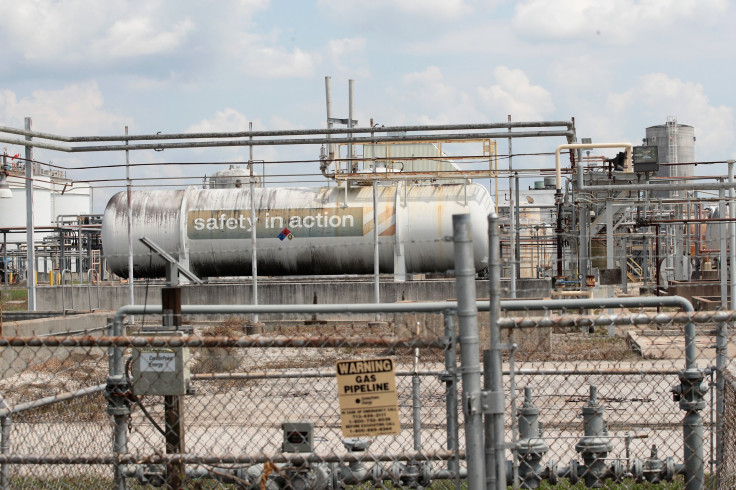Harris County Sues Arkema For Hurricane Harvey Environmental And Safety Violations

Arkema, the French chemicals company whose plant was the site of multiple explosions during and after Hurricane Harvey, has become the subject of a lawsuit Thursday by Harris County, Texas.
The explosions and chemical fires resulting from the hurricane’s flooding released toxic emissions into the nearby residential neighborhood that left several residents and first responders ill. The county’s lawsuit seeks a $1 million penalty and would force Arkema to undergo an independent audit of its disaster preparedness plans and implement any recommendations of that assessment.
For the county, the priority is more on making sure such a public health emergency does not reoccur.
"We're not so much interested in the penalties as we are in the audit and emergency response plan so that it’s prepared for flooding in the future,” Assistant County Attorney Rock Owens, who handles environmental cases for Harris County, told International Business Times. “We’d like to see Arkema consider hardening their storage facilities so that there’s not such a risk of uncontrolled chemical ignition. That created a lot of dangerous possibilities.”
Owens told IBT that the suit was brought with the full support of the Harris County Commissioners Court because everyone involved wants to make sure that the county does not become “another West, Texas,” referring to the 2013 West Fertilizer Company explosion that left 15 people dead and well over 100 injured.
“Suing a victim is never the right solution to a natural disaster,” Arkema’s attorney Rusty Hardin said, responding to the lawsuit in a statement emailed to IBT. “We are disappointed that this lawsuit was filed when we were in discussions with the county to cooperatively resolve the issues. As they and we all know, this was an extraordinary flooding event. Arkema and its employees, like other businesses and individuals in Harris County, were victims of this storm.”
An IBT review of Arkema’s Securities and Exchange Commission filings found that the company had warned its shareholders of the very scenario that occurred in August: a flood causing a power failure that results in a loss of temperature control leading to stored chemicals becoming volatile. So Arkema was aware of the dangers posed by extreme flooding.
Owens, volunteering a response to Arkema’s statement, said that he was “responsible to the six million victims of the storm,” not Arkema. “We knew around August 23rd to expect heavy flooding,” said Owens. “The company had time to consider alternatives to keep those materials high and dry and keep residential neighborhoods safe.”
An IBT review of lobbying records previously found that Arkema had successfully lobbied to delay the implementation of safety rules that would have required the company to more closely coordinate with first responders in preparing for emergencies such as hurricanes.
When asked if Arkema’s lobbying activity was a concern for the county, Owens responded: “They’re entitled to express their opinions in Washington or Austin. But they’re not entitled to endanger the community.”
© Copyright IBTimes 2024. All rights reserved.











